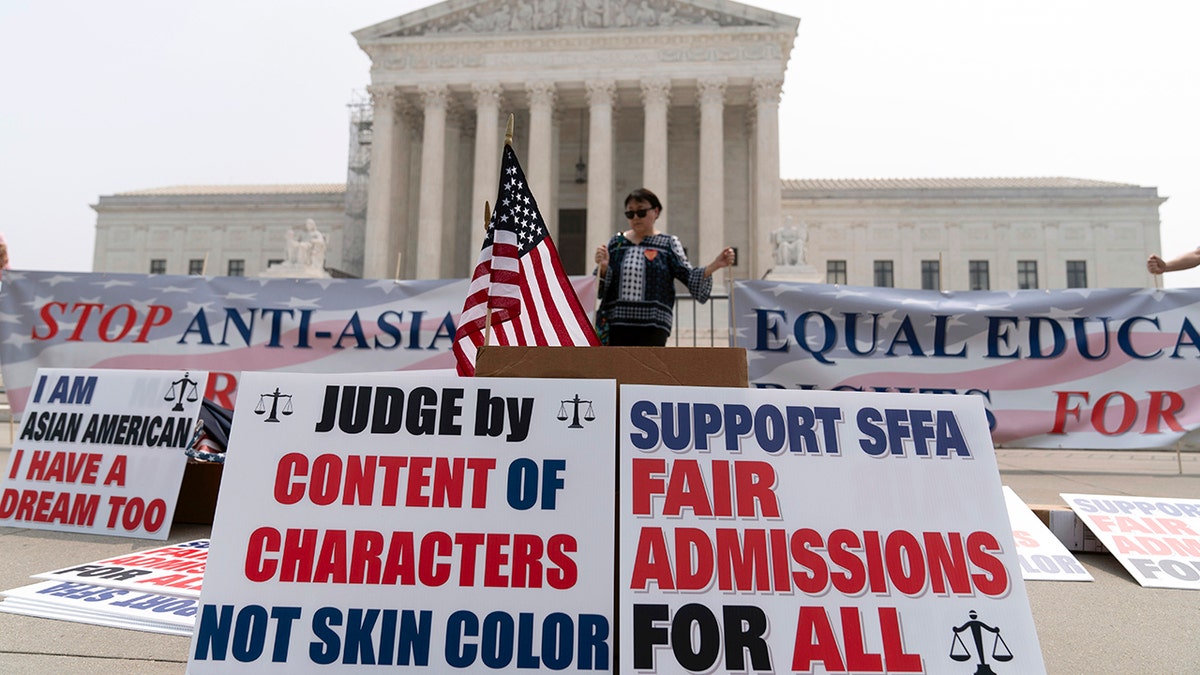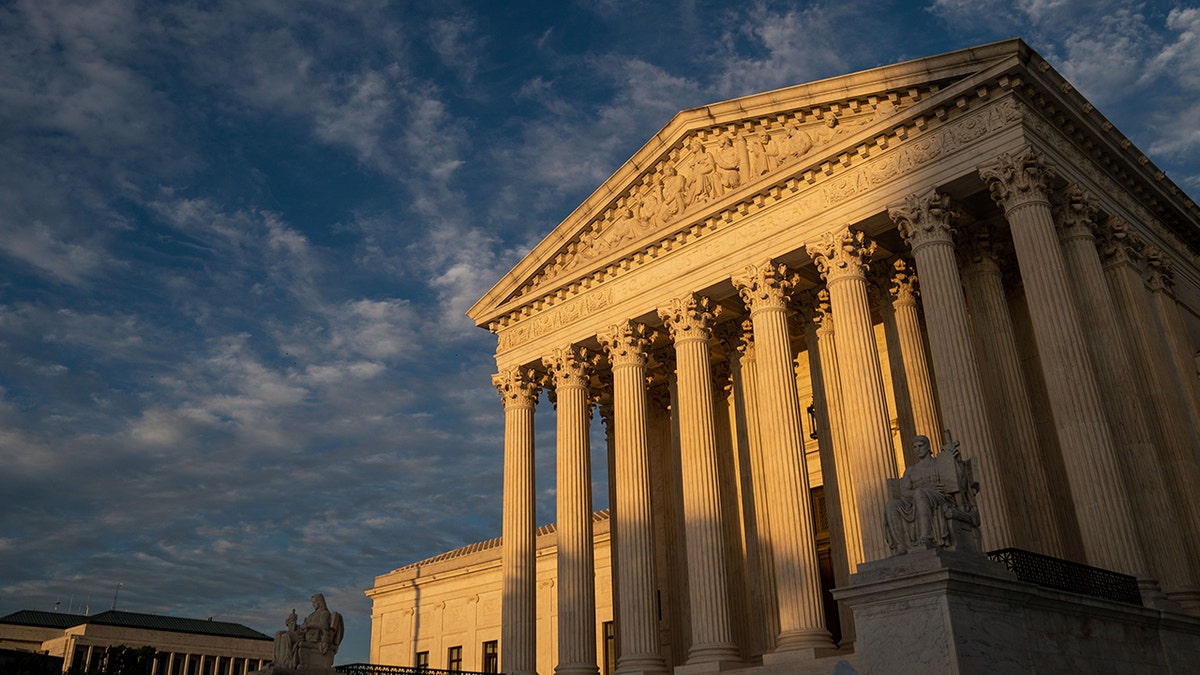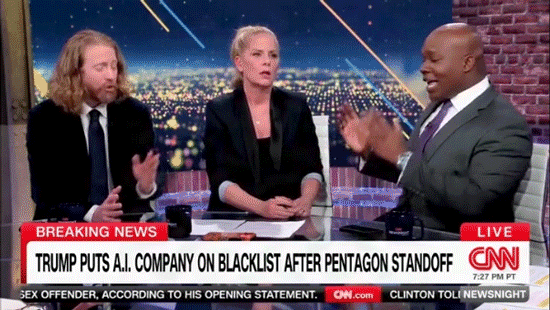Education advocate responds to journalists' attacks on her tweet celebrating affirmative action ruling
Asian Wave Alliance President Yiatin Chu told Fox News Digital that her intentions and the intentions of others who sought to overturn affirmative action in college admissions were misinterpreted.
The Supreme Court's landmark ruling on affirmative action in college admissions ignited a series of attacks against opponents of race-based admissions practices who argued those at many U.S. colleges deprived high-achieving Asian-American students of a fair shot at admissions simply because of their race.
Among those hit was Yiatin Chu – an Asian-American mother, immigrant, co-founder of Parent Leaders for Accelerated Curriculum and Education (PLACE NYC) and president of the nonpartisan political advocacy group Asian Wave Alliance – who celebrated the high court's ruling declaring race-based admissions practices unconstitutional last month.
After the decision was handed down on June 29, Chu tweeted in celebration, "I told my daughter that today is a big day. They’ve ended affirmative action. ‘Isn’t it what you've been fighting for?’ she asked. I said yes."
Soledad O'Brien was among the personalities who fired back, saying, "Congrats on screwing over other people of color, ma’am! (Particularly those whose efforts in civil rights paved the way for your family to come to America!)."

A person protests outside the Supreme Court in Washington, Thursday, June 29, 2023. (AP Photo/Jose Luis Magana)
Jemele Hill, a writer for The Atlantic, accused Chu of "carrying the water" for White supremacy, responding in full with, "Can’t wait until she reads that you gladly carried the water for white supremacy and stabbed the folks in the back whose people fought diligently for Asian American rights in America."
Responding on Monday, Chu told Fox News Digital the intent behind overturning affirmative action is being misinterpreted as a bastion of White supremacy.
"To paint the merit of the case as something that is standing up for White supremacy or against any particular group of people is, I think, a very misguided view of the intent of what I wanted and what I think most people want when they say we want an end to affirmative action," she said.
"This is not to try to denigrate some other groups of people. It's really about fighting for our equal rights to be treated no better."
Chu immigrated to the United States as a child in 1976 and grew up in New York, where she continues to advocate for the Asian-American community through the work of her nonprofit. She became fluent in English as a child and went on to The Bronx High School of Science, college and then graduate school and found a successful career in health care and media.
"I was probably what you would consider the American dream, right?" she said. "Coming here with parents who had nothing, no social capital. Through their encouragement and through my will to want to do well in my life, I was able to go through to my graduate education and eventually had opportunities in terms of my career that has led to a comfortable life in New York City."
She later became involved in activism thanks to former New York City Mayor Bill De Blasio's plan to eliminate the Specialized High School Admissions Test (SHSAT) that was codified into New York state law in 1971. She has remained an education advocate ever since.
Circling back to the affirmative action issue, Chu said she isn't sure why her June 29 tweet garnered so much attention, but digressed further into the attacks she received from both journalists, arguing that Asian-Americans who oppose race-based admissions practices are simply championing equal opportunity for everyone.
"Both the tweets from Jemele Hill as well as Soledad, are not giving Asian-Americans the agency that we have as much right to stand up for what we believe was done wrong to us and to link it as I'm doing someone else's service is ridiculous," she said. "We are standing up for ourselves. We're standing up for what we think we deserve to have in this country as equal citizens of the United States and this is the premise of why my parents and other immigrants continue to want to come to the United States is for this equal opportunity."

The Supreme Court of the United States on Thursday, Oct. 6, 2022 in Washington, DC. (Kent Nishimura / Los Angeles Times via Getty Images)
Chu said the Supreme Court's ruling is a step in the right direction, but she is only "cautiously optimistic" about how the policy will be implemented in the future, calling on everyone to hold universities accountable by making sure they are following the law as reports swirl that schools are looking for loopholes in the law.
Despite the rough road ahead, Chu still celebrates the ruling as something that challenged a discriminatory practice.
"This ruling's for certainly Asian-Americans to be seen as a group that will be fighting, that has fought for our civil rights, but it's really a ruling for all kids to be not judged by their race."
CLICK HERE TO GET THE FOX NEWS APP
The Supreme Court's 6-3 ruling rolled back years of precedent that allowed schools like Harvard University and the University of North Carolina – two institutions at the epicenter of the affirmative action issue – to include racial demographics when considering which applicants to admit.
The court ruled the existing practice violated the 14th Amendment's equal protection clause by depriving Asian-American applicants a fair chance at admission.
The ruling is expected to help prevent stories like that of Georgia Tech student Jon Wang, who, despite having a near-perfect SAT score and a high GPA, was rejected from six elite universities, including Harvard, allegedly because of his race.











































